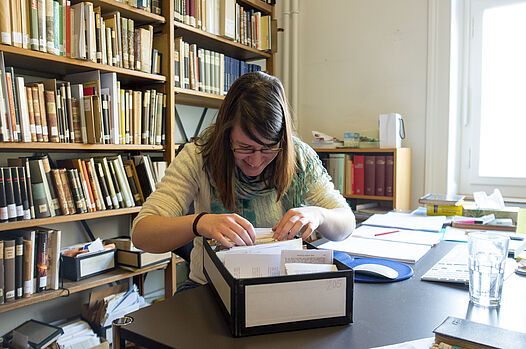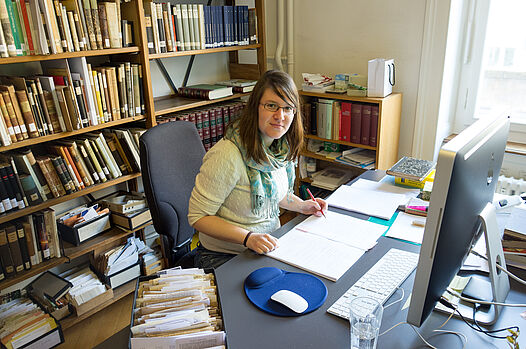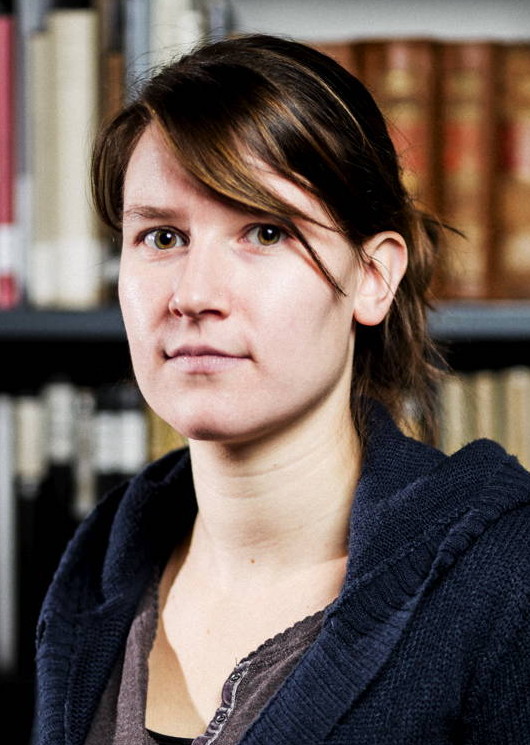Describe your current job and what you particularly like about it.
The main activity of a lexicographer is drafting dictionary entries. Working on a word is very varied, because our dictionary covers not only the recent dialects but also the language of the later medieval and early modern periods. We are also the point of contact for print media, radio stations, other research projects and also private individuals who are interested in the modern and historical German language in Switzerland, or need information about it. My work is therefore very varied. Furthermore, you are always acquiring new cultural and historical knowledge when working on a word list or researching an enquiry.
How did you end up in your current job?
Towards the end of my Bachelor's degree, a fellow student helped me obtain a post as a research assistant. While doing my Master's, I applied for an editorial job that became vacant.
What combination of subjects did you study, and at which university?
When I started my degree at Zurich University, I studied English and Nordic languages and literature. However, it soon became clear that although I love reading, the academic approach to literature does not appeal to me so much, so I changed to comparative Germanic linguistics. My subsidiary subjects were general history and medieval history.
What attracted you to doing a degree in language and literature studies?
It was an obvious choice, because languages fascinate me more than anything else. This interest was always at the forefront of my mind when choosing my degree course.
What is the most important thing you brought from your studies into your professional work?
My specialist knowledge, of course, but also the ability to get to grips with new topics
independently.
What tips do you have to help prospective students of language and literature studies on their way?
Wherever possible I would advise them not just to work for ECTS credits, but to follow their own interests and also take a course or two that isn't required for their degree. It is absolutely crucial to seize the opportunity to acquire knowledge and skills in the widest possible range of areas at university. If you can sometimes study things just for your own interest, without having to gain credits and meet deadlines, this will also help you continue to enjoy being a student.
November 2014



